Longjing Tea Village - Eintrittskarte, Öffnungszeiten, Lage und Highlights


Longjing Tea Village (龙井村), renowned worldwide for its production of premium West Lake Longjing Tea, is often hailed as the “Number One Tea Village.” With a total area of 18.09 hectares, Longjing Village boasts nearly 800 acres of high-mountain tea gardens. Positioned to the northwest are natural barriers such as Beigao Peak, Shizi Peak, and Tianzhu Peak, shielding the village from the chilling winds of the northwest. To the south lies Jiuxi Creek, a deep and wide valley leading directly to the Qiantang River. The geographical features of the valley, coupled with the southeast winds during spring and summer seasons, provide optimal conditions for the growth of Longjing Tea, ensuring excellent ventilation and airflow. The Longjing Tea produced here ranks among the finest, symbolizing the pinnacle of tea quality.
Inhaltsübersicht
- Grundlegende Informationen
- Standort und Transport
- Highlights of Longjing Tea Village
- Vlog about Longjing Tea Village
- Attractions near Longjing Tea Village
- Andere ikonische Attraktionen in Hangzhou
Grundlegende Informationen
| Geschätzte Dauer der Tour | 2 - 3 Stunden |
| Ticketpreis | Kostenlos |
| Die Öffnungszeiten | 24 Stunden am Tag das ganze Jahr über |
Standort und Transport
Located in the Xihu District of West Lake Scenic Area, surrounded by picturesque mountains. Visitors can easily reach the village by taking public transportation options such as bus routes 27, 508H (Longjing Digital Special Line on holidays), 87H, or 87 to the Longjing Tea House bus stop (龙井茶室站). From there, it’s a short walk to the village.
Highlights of Longjing Tea Village
Longjing Well (Dragon Well)

The heart of the village, Longjing Spring, is a circular pool with a diameter of about 2 meters. Its water flows through landmarks like Yinqiao Bridge and Huangniling before streaming into West Lake. What sets Longjing Spring apart is its mesmerizing characteristic: when disturbed, a distinct waterline appears on the surface, resembling a continuously swaying silk thread known as “dragon whiskers,” which slowly fades away. Visitors are enchanted by this natural phenomenon, often feeling a sense of wonder as they witness it.
Nestled along the southern roadside, Longjing Well is an ancient hexagonal well. Despite its low mouth, one can easily reach the clear well water by extending a hand. Covered in moss, the well has become a spot for villagers to wash clothes since the introduction of tap water.
Longjing Temple

With a rich history and cultural heritage, Longjing Temple stands as a testament to the convergence of spring culture, tea culture, and Buddhist culture. Its architectural elegance and classical beauty captivate visitors, offering them a tranquil retreat amidst lush surroundings. Notable structures within the temple complex include the Listening to Spring Pavilion, the Cui Feng Pavilion with its panoramic views, the well-equipped Imperial Library, and the serene Qingxu Hall. Visitors can immerse themselves in the serene atmosphere, enjoying tea and admiring the scenery while contemplating the temple’s historical significance.
Eighteen Royal Tea Trees
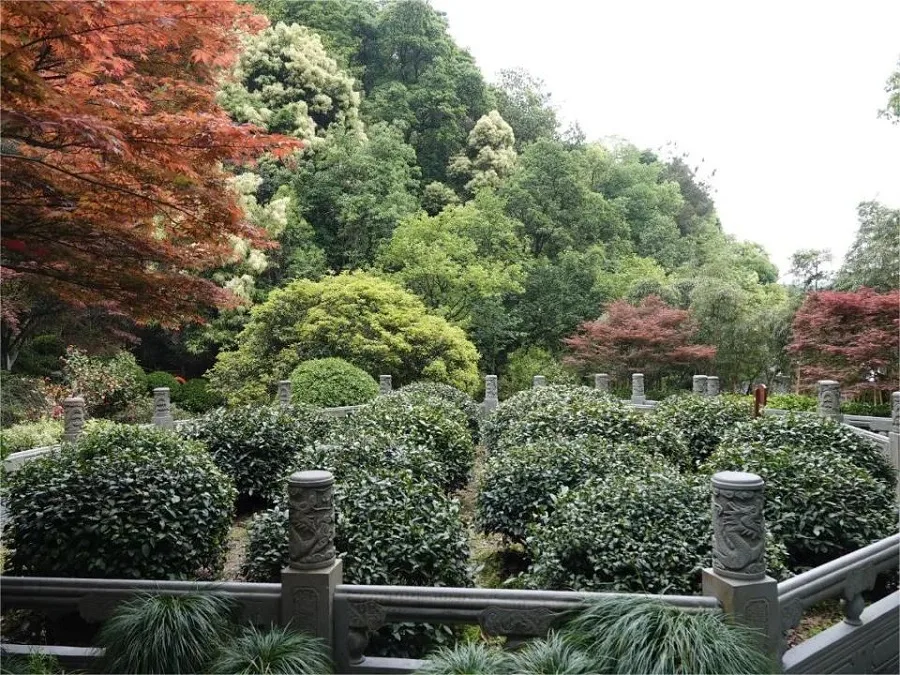
The fame of “Eighteen Royal Tea Trees” (十八棵“御茶”) can be attributed to an anecdote involving Emperor Qianlong. Legend has it that during his visit to Hangzhou’s Longjing Lion Peak, Emperor Qianlong, learning about tea picking from local women, hastily departed upon receiving news of the Empress Dowager’s illness. In his rush, he inadvertently brought back a handful of dried tea leaves from the Lion Peak. Upon tasting the tea, the Empress Dowager experienced relief from her ailments, declaring the tea from Hangzhou’s Longjing Lion Peak as a miraculous remedy. In recognition of this healing property, Emperor Qianlong decreed the eighteen tea trees near Hugong Temple at the foot of Lion Peak as “Royal Tea Trees.” These trees were to be exclusively harvested each year to provide tribute tea for the Empress Dowager.
Vlog about Longjing Tea Village
Attractions near Longjing Tea Village

Nine Creeks in Misty Forest

Chinese Tea Museum, Hangzhou

Shili Langdang Hiking Trail
Andere ikonische Attraktionen in Hangzhou
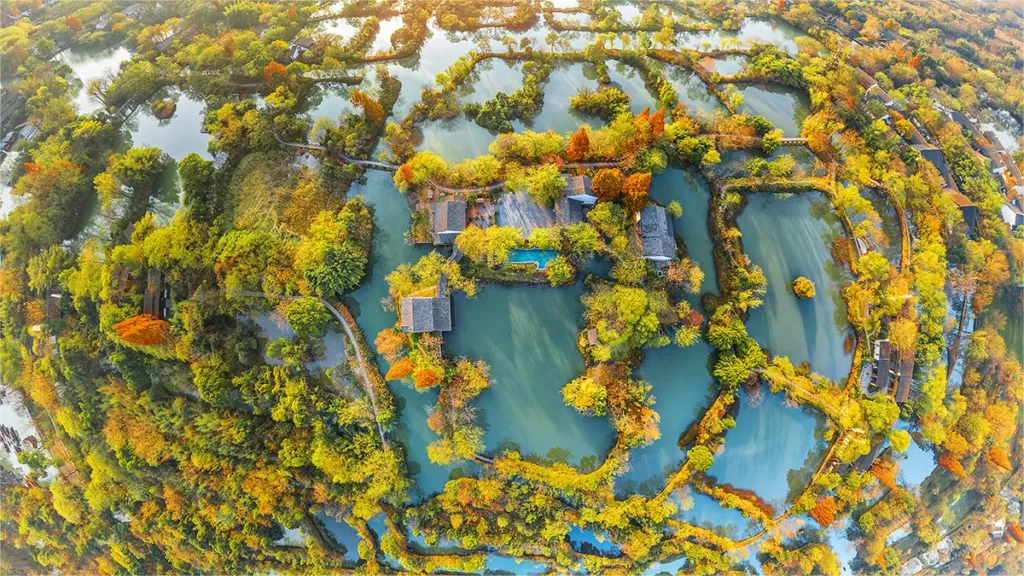
Xixi Nationaler Feuchtgebietspark
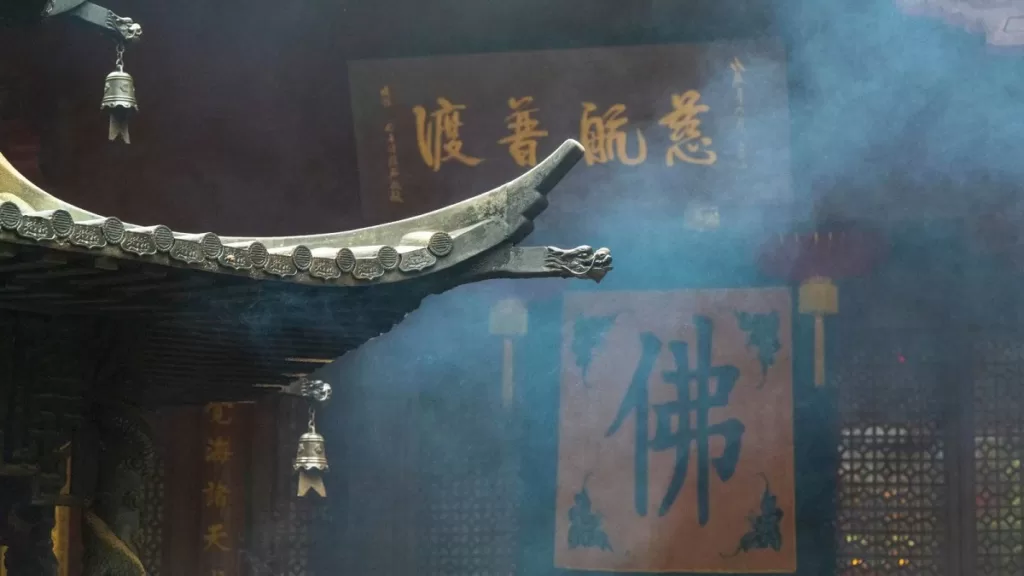
Lingyin-Tempel, Hangzhou
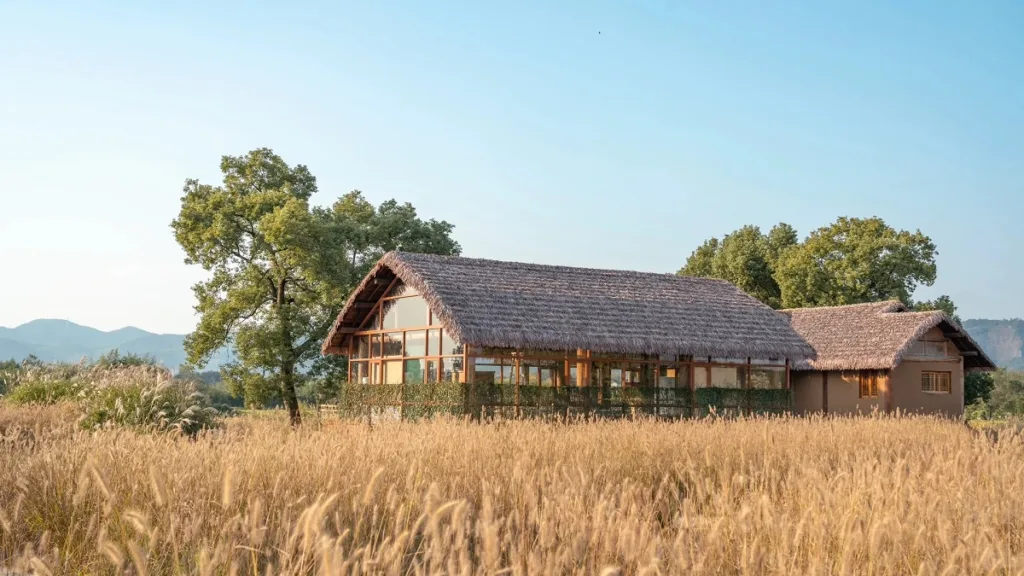
Park der archäologischen Ruinen von Liangzhu
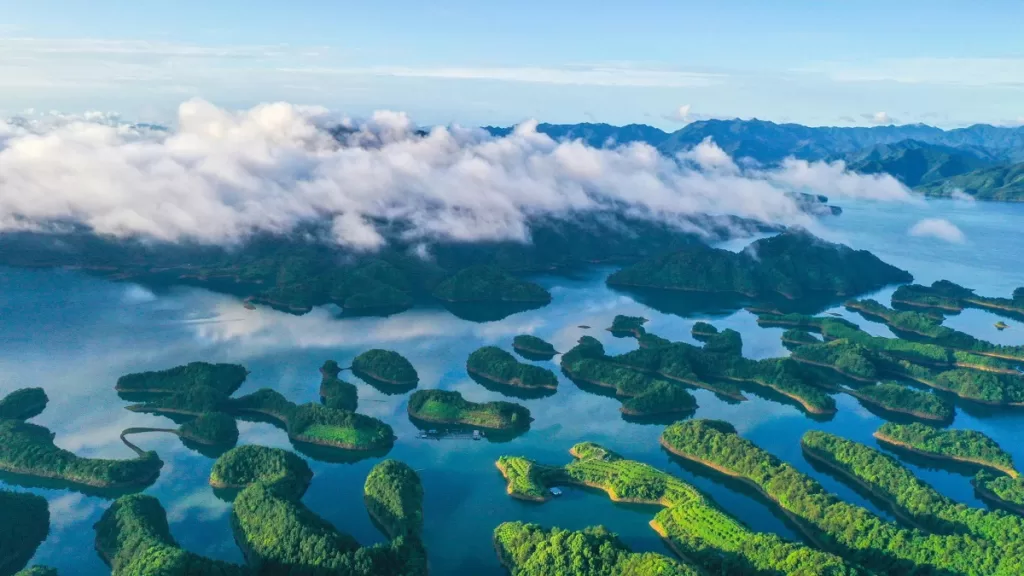
Qiandao-See, Hangzhou

West Lake Scenic Area
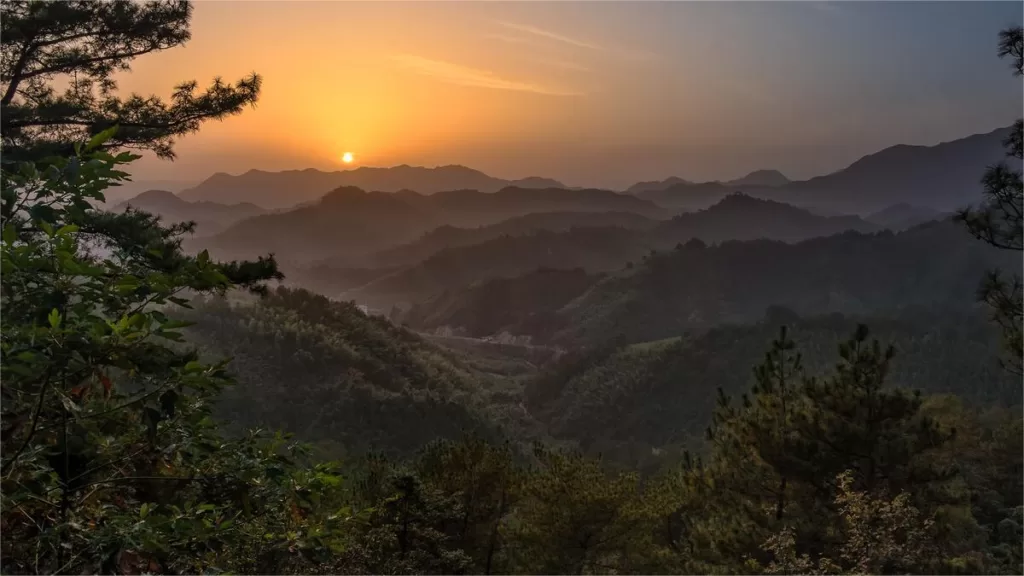
Tianmu-Berg
Hangzhou Attraktionen, Lokales Leben in Zhejiang